Courier Absolutely's managing director Jeremy Thompson is employing a number of solutions to tackle the issue of urban congestion. By John Maslen
The rapid pace of change is transforming many fleets and the speed of developments is accelerating.
From new fuel policy trends and the rise of hybrid technology to the impact of connected vehicles and a growing focus on wider corporate mobility, it may seem change is constant.
But for Jeremy Thompson, managing director of London-based courier Absolutely, there is one constant that has remained throughout his company’s 150-year history, and it’s one that is a major challenge to many fleets in the capital.
He says: “If you look at traffic speeds in London, it is travelling at the same speed it was in 1880, when it was horses and carts.
“Congestion is a problem, with roadworks, reduced road space because of cycle lanes and traffic calming.
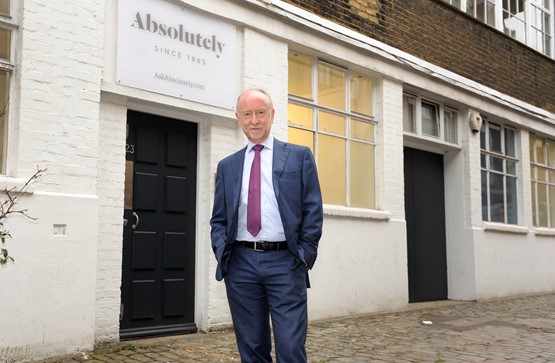
“At the same time, customer expectations are changing. People want deliveries quicker and quicker, with e-commerce promising next day delivery and even same day delivery.
“We are getting used to things being delivered very quickly, so demand will increase, but people don’t realise the complex operation that makes it possible.”
Absolutely operates a fleet of more than 200 vehicles, ranging from commercial vehicles to motorbikes and bicycles, covering 4.5 million miles annually to deliver nearly a million parcels.
It is an agent for courier network APC Overnight, in addition to its independent work, and carries tens of thousands of parcels a week for local and international delivery, often on a same-day or next-day basis, for more than 5,000 corporate accounts.
To minimise the impact of congestion, the fleet needs to prioritise a right-first-time delivery strategy among both its owned fleet and its team of 250 self-employed drivers.
Drivers operate their own vehicles, although Absolutely also has an owned fleet, part leased and part hire purchase through Lex Autolease and Black Horse Finance.
These are typically more expensive vehicles, such as refrigerated units, which are then hired out to drivers.
For Absolutely, the initial focus is on making sure drivers are well-trained and qualified for the role before allowing them to receive contracts from the company.
Thompson says: “The fleet department will make sure that drivers have the right experience and attitude for the job.

"We check that their vehicle is fit for the road and has an MOT if necessary and that the driver has a Unique Tax Reference, while we also check their ID and confirm their address details.
“When we take on a driver, they commit to certain things, such as insurance, staying legal, maintaining the vehicle and keeping it looking smart.
"They are the face of our business. We interview them to make sure they know how the job works and their responsibilities. The fleet department know who professional drivers are; a good interviewer can establish that.
"If they are in doubt, they might do an assessment to see how they handle the van.
“However, these are responsible, professional people doing a professional job. As professional drivers, they know errors could put their livelihood at stake.
“The rates of pay we provide are pretty good and as a large company, drivers have little dead mileage and a lot of their work doubles up, so the vast majority are happy.”
As drivers are self-employed, the business has adopted an alternative to hard-wired tracking devices by using a smartphone-based system provided through DA Systems, a courier software company.
This turns smartphones into business machines, with sign-on-screen proof of delivery signature capture, a photo capture function to prove handover for unattended deliveries and two-way messaging.
As smartphones are all GPS-enabled, Absolutely can track drivers to offer estimated time of arrival to clients and also pick the closest driver to a new job, sending details straight to their phone.
Back at Absolutely headquarters, tracking screens include a ‘snail trail’ history of driver routes, with information about the number of parcels being carried at any time.
Thompson says: “The technology is very good and it also means that we can contact drivers directly if we notice any issues, although we don’t contact drivers when they are driving.”
The courier industry operates on reputation, with reliable delivery being an essential part of building customer loyalty and long-term relationships.
At one stage, this led Absolutely to prioritise the acquisition of premium brands for its van fleet, with a focus on minimising downtime for individual vehicles, but this created a total cost of ownership challenge that will be familiar to many fleet operators.
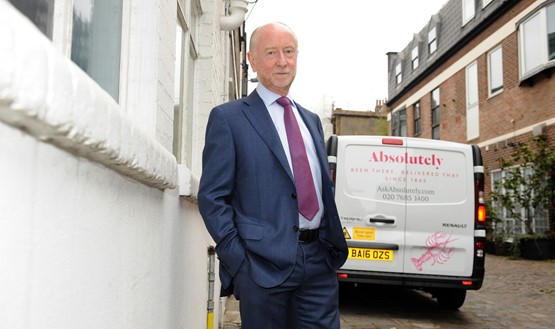
The business was targeted by thieves who kept stealing the vans based on the lure of the potential profit from a premium brand and led to Absolutely incurring losses each time a unit was taken.
Thompson weighed up the total cost of ownership elements, including losses and increased insurance costs, and shifted acquisition policy as a result.
He says: “Reliability is a key factor in vehicle choice, but you have to consider wholelife costs and that includes theft.
“We had a lot of premium vehicles that were targeted by thieves and several were stolen, so it’s better to use cheaper, less desirable vehicles. They may not have the same reliability record, but they do come out cheaper.
“Once your name gets around, these guys know how to take off in-built security, so we opted for other makes.”
An additional consideration for the fleet is how to adapt strategy to cope with new emissions legislation, including the new T-charge being introduced in the capital this year and plans for clean air zones in cities throughout the country.
London will implement an Ultra-low Emission Zone next April.
Thompson adds: “We keep drivers up-to-date about the changes and warn them when they are coming into effect.”
However, he currently doesn’t see an alternative to vans and diesel as the mainstay of courier operations, saying: “There is no doubt electric vehicles are coming and they will happen sooner rather than later, but at the moment there are not enough charging points and the technology is not ready.
“If I get a driver allocated a job in Middlesbrough, then an EV doesn’t have the range. I am sure, looking at this in 20 years’ time, the whole fleet will be electric, but battery technology is not advanced enough for now.”
The courier industry is already at the forefront of changes in mobility, having embraced the potential of motorbikes and bicycle couriers for years.
Absolutely has a fleet of specially-built parcel bikes, with a carrying platform between the cyclist and the front wheel, where several parcels can be carried.
They are ideal for short, urban delivery routes, where they can often complete the job quicker than a car or van.
“For local work, it can get around more quickly than a car or van and it also helps in terms of pollution,” Thompson says.
“They are pedal-powered, with no electric assistance, so the guys that use them are pretty fit.”
However, whether couriers are using cargo bikes or standard bicycles, they are some of the most vulnerable road users on city streets.
Absolutely prioritises safety and last year announced a trial of an initiative in collaboration with Hövding, the airbag for cyclists.
A select number of couriers were provided with the innovative safety product, worn around the rider’s neck.
In the event of an accident, the airbag inflates in 0.1 seconds to form a hood that provides three times better shock absorption than a traditional bicycle helmet.
Thompson says: “Hövding is a good example of deploying technology in our business for the benefit of our cycle couriers and leading the way in London.
"Ensuring our couriers have adequate protection is of paramount importance to us.”
For its vehicle fleet, Thompson says the professional nature of its driver population keeps incidents to a minimum.

When accidents do happen, the transport department obtains full accident reports, including photos.
Drivers are interviewed and the company liaises with the insurance company, if appropriate, and any third-party involved.
Thompson says: “Our active management of this area has recently resulted in a significant saving in our insurance premiums.”
The company also makes use of dashboard cameras on its owned fleet to record incidents, with self-employed drivers increasingly using the technology to protect themselves from false claims in the event of an incident.
With cost efficiency a key focus, an additional challenge is the ongoing tax treatment of self-employed drivers.
The use of freelance drivers in the courier industry is a long-standing practice and something that Thompson says is welcomed as a flexible and tax-efficient way of working.
However, recent court cases designed to tackle perceived problems with the so-called gig economy have raised concerns about potential disruption in the courier sector.
Courts have ruled in favour of self-employed couriers after claims, awarding them the right to paid holidays and back pay in some cases, with affected companies including CitySprint and also ride-hailing company Uber.
Thompson said: “There are cases where, in a verdict being handed down, payments have been backdated, which I don’t think is fair.
“The authorities knew how businesses run in our industry. We have operated for decades on this basis. If now it’s being decided that a company is wrong, then there is something wrong with the regulations.”
Despite these ongoing challenges, Thompson sees the underlying principles of the courier industry remaining the same as they have been for more than a century.
“I don’t see anything particularly new,” he says.
“We have been operating in the same way for 150 years, picking up a package for a client and then delivering to someone else. We provide a quick, efficient service at a competitive price.”
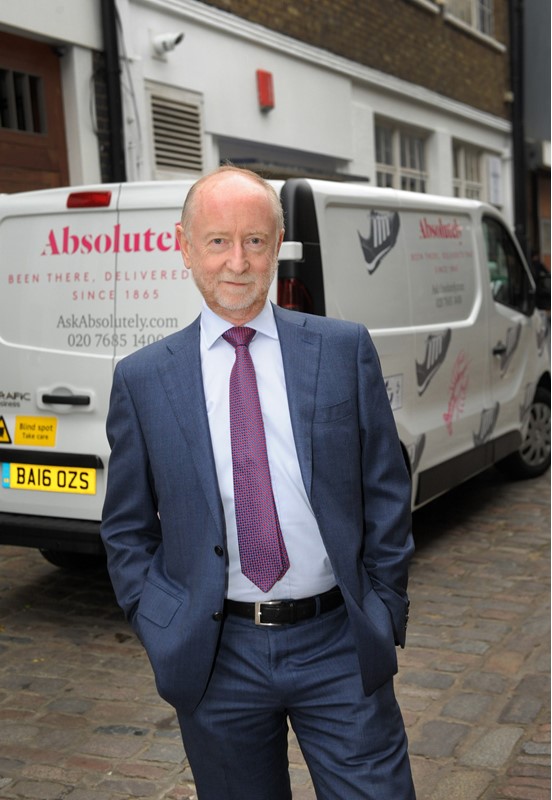
Livery tells story as Absolutely expands
Livery can play an important role in promoting a company and for Absolutely it provides insights into the company’s history.
Van livery tells stories from the company’s history, such as an image of a lobster, which relates to the time a driver rang the office to report that a lobster he was transporting had escaped and got trapped under a seat.
Another shows an Alsatian, after a client used the dog to describe a package – “the box is as big as an Alsatian”.
Other vans feature scissors, cheese and trainers, although the inspiration for some has been lost in history, along with a range of colours which reflect the London tube map.
The original holding company, G Thompson Ltd, was founded in 1865 by Jeremy Thompson’s great grandfather George, a station master at St Pancras station.
He identified a business opportunity to work as a freight agent for the privately-owned railway companies and, aided by his sons, he grew the business to employing more than 30 people.
The company transported a wide range of people and goods across the capital, using horse-drawn carriages.
Over the years, the company has introduced new business elements and new names, but last year consolidated to focus on parcel delivery, after selling its private hire business.
It now employs 130 people in non-driver roles across three branches, including a fleet team of five led by Graham Cross.
It has recently been on the acquisition trail, buying 3D Couriers for an undisclosed sum to replace the lost revenue from the private hire sale.
3D is a specialist courier company established in 2003, with annual turnover of around £2m.
The 3D deal follows on from Absolutely’s acquisition of MayDH in May last year.
Thompson adds: “It’s an important additional asset for Absolutely to further enhance our proposition for our clients.
"The transaction precisely aligns with our stated ambition to expand by carefully chosen complementary acquisitions over the coming years.
“There is growing demand for parcel delivery and increasingly for people wanting something the same day.
“We have been an acquisitive company and we are looking to do further acquisitions. Watch this space.”



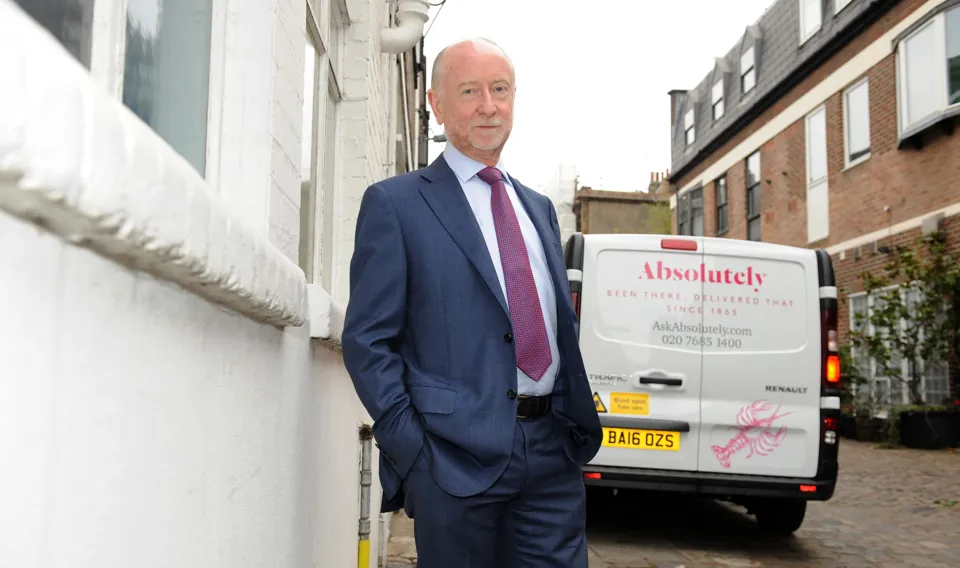













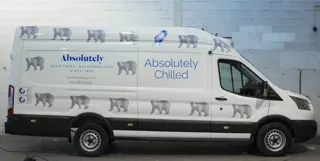
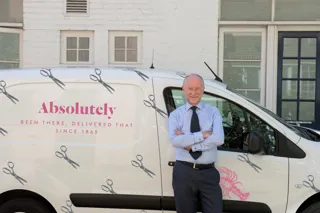

Login to comment
Comments
No comments have been made yet.